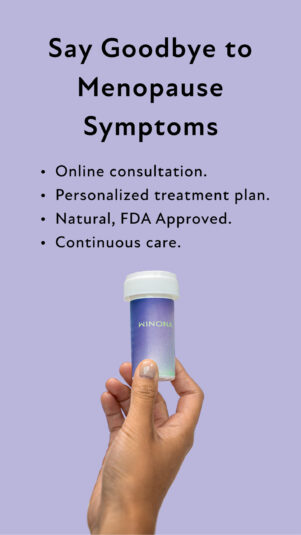Menopause brings a range of changes to a woman’s body, with vaginal dryness being one of the most common. This often results in discomfort and a decrease in natural lubrication. Fortunately, there are various treatments like creams, hormone replacement therapy (HRT), and estrogen that can effectively relieve these symptoms. Exploring these options can help improve your comfort and quality of life.
Beyond medical treatments, you might consider natural remedies for managing dryness. Staying hydrated and including soy-based foods in your diet can support moisture levels. Lifestyle changes such as avoiding scented products can prevent further irritation and itching. These small changes can make a significant difference.
Understanding the broader issues associated with menopause, like vaginal atrophy and odor changes, is important. Hormonal shifts often lead to symptoms like unusual discharge or itching, which can be distressing. Knowledge of the options available, including pills and creams, empowers you to make informed decisions about your health.
Understanding Vaginal Atrophy
Vaginal atrophy occurs when vaginal walls thin and dry due to decreased estrogen, commonly after menopause. This leads to discomfort and affects daily life.
Symptoms of Vaginal Dryness
Vaginal dryness can cause itching, burning, and discomfort during intercourse. You might notice redness and a decrease in natural lubrication. These symptoms may also come with distressing urinary issues like frequent urination or urgency.
The vaginal tissues become more sensitive and prone to irritation. This can result in general discomfort, impacting your quality of life and relationships.
Causes of Menopause-Related Vaginal Changes
Menopause triggers vaginal changes because your body produces less estrogen. This hormone keeps tissues healthy and moisturized. When estrogen levels drop, the vaginal lining becomes thinner.
Certain medical treatments can also lower estrogen levels, like chemotherapy. Surgical removal of ovaries leads to similar effects. These changes are natural, but they can be managed with proper care.
Comprehensive Management of Menopausal Vaginal Symptoms
Effectively managing menopausal vaginal symptoms involves understanding different treatment options. Important therapies include hormone replacement therapy, various alternatives to estrogen, and over-the-counter options. Each has its benefits and applications based on personal needs and medical advice.
Role of Hormone Replacement Therapy (HRT)
HRT is a common approach to addressing menopausal symptoms, including vaginal dryness and discomfort. This therapy works by replenishing estrogen levels, which may reduce vaginal atrophy and irritation.
You might consider HRT to improve urinary symptoms related to menopause. Consulting with your healthcare provider is crucial, as they can determine the proper dosage and form. Estrogen creams, rings, or tablets are some options available, each having distinct use instructions and effects.
Estrogen Alternatives for Vaginal Dryness
If HRT is not suitable, there are alternatives to estrogen that can manage symptoms effectively. Non-hormonal medications, such as ospemifene, act on estrogen receptors to improve vaginal health.
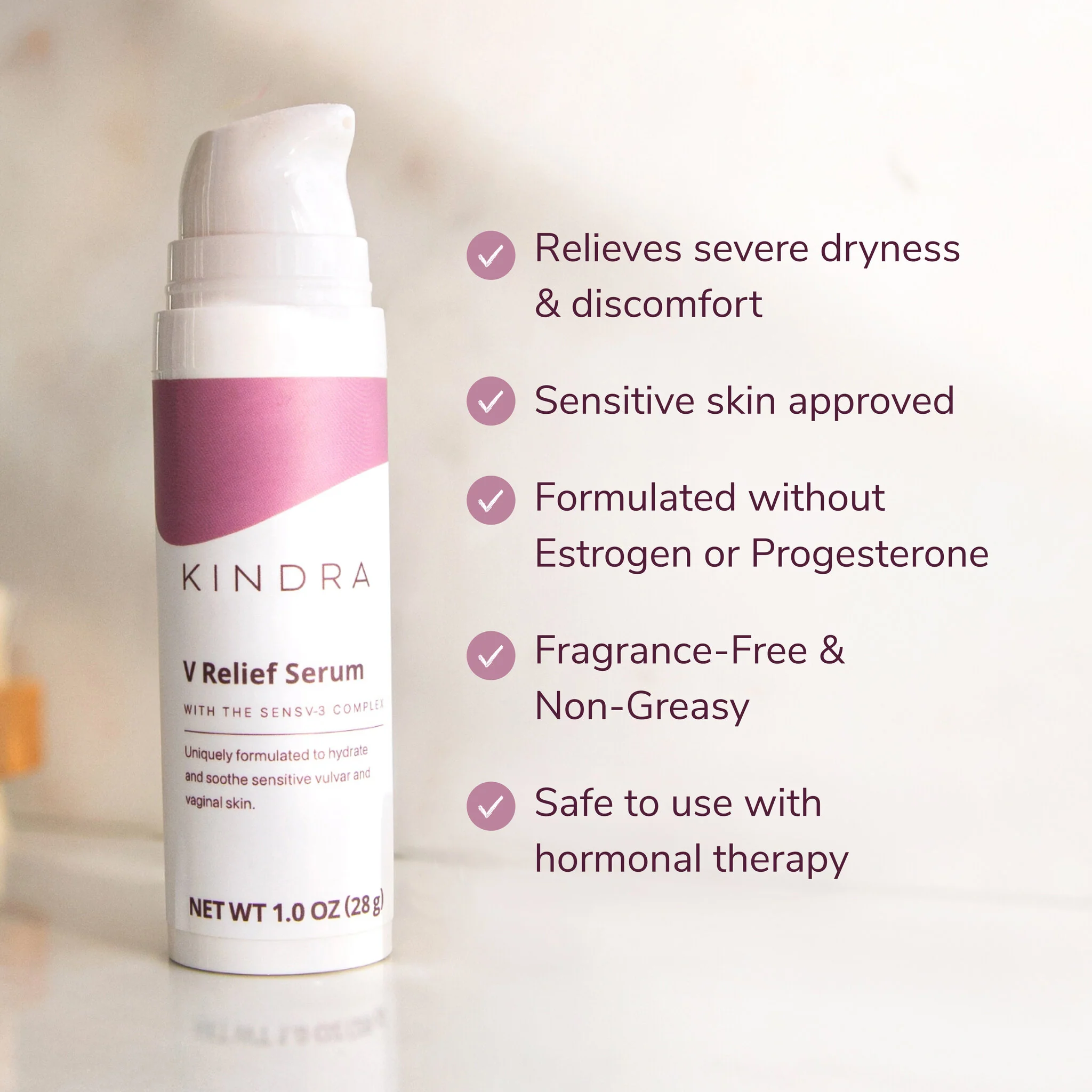
Estrogen-Free Serum
Gentle yet potent formulation provides relief for vulvovaginal discomfort and sensitivity
Another option is selective estrogen receptor modulators (SERMs), which may help improve lubrication and reduce pain during intercourse. These alternatives can be advantageous when hormonal treatments are not preferred or possible. Discuss these choices with a healthcare professional to ensure they align with your medical needs.
Over-the-Counter Options for Symptom Relief
Several over-the-counter (OTC) products offer relief from vaginal dryness and itching. Moisturizers like Replens and lubricants such as Astroglide can provide comfort and enhance sexual activity.
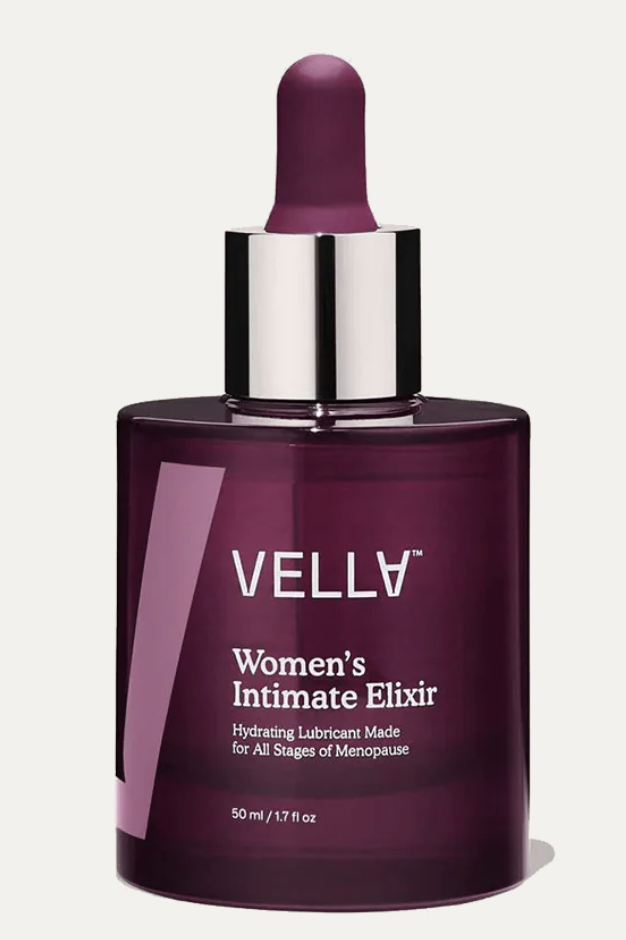
Women’s Intimate Elixir
This ultra-lightweight, water-based lubricant is formulated especially as a menopause lubricant for women with low estrogen
OTC vaginal creams may help ease symptoms like burning and irritation. Look for products without fragrances or dyes to reduce the risk of irritation. For those seeking natural remedies, options like coconut oil can also provide relief. Evaluate your symptoms and try different products to find what works best for you.
Topical Treatments for Vaginal Dryness
When dealing with vaginal dryness, there are several topical treatments available. You can choose between hormone-based vaginal creams and natural remedies that offer different ways to ease discomfort. Each option has its strengths, making it important to find what works best for you.
Effective Vaginal Creams
Vaginal creams with estrogen are a common treatment for alleviating dryness. These products help restore moisture and thickness to the vaginal tissues. They are applied directly to the area, allowing for targeted relief. Prescription options like Estrace and Vagifem are popular choices recommended by healthcare providers. These creams help many women experiencing hormonal changes due to menopause.
Hormone-free creams are also available for those who prefer an alternative. Products such as Replens can help maintain moisture without the use of hormones. These moisturizers work by creating a barrier to seal in hydration and soothe irritation. It’s key to apply them regularly to achieve the best results.
Natural Remedies and Their Efficacy
Many women explore natural remedies to manage vaginal dryness. Coconut oil and vitamin E oil are popular for their moisturizing properties. Both oils can be applied as needed to soften and hydrate tissues. They are generally considered safe, but it’s smart to consult your doctor before use.
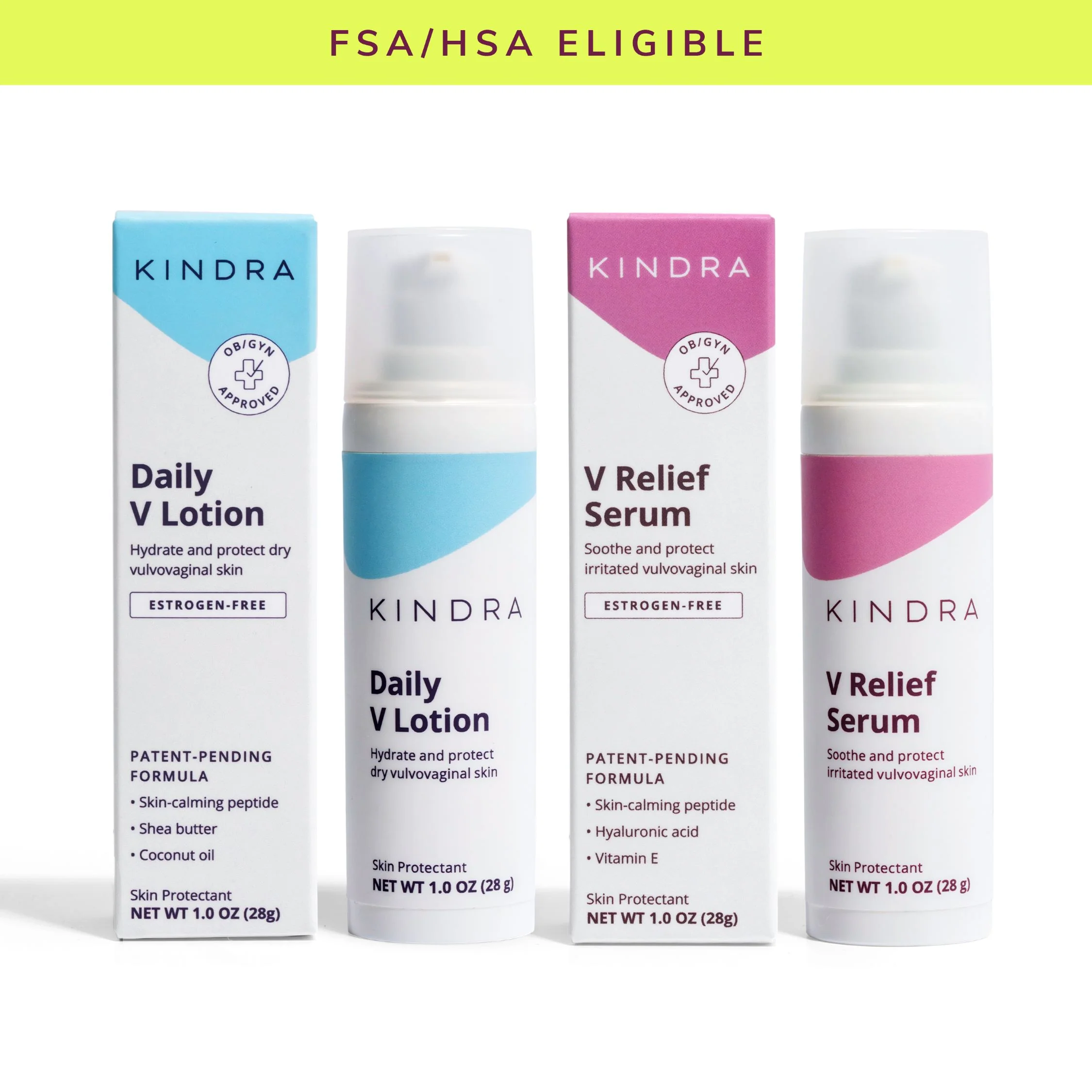
V Hydration & Relief Duo
V Lotions and serums, for days when you may be feeling pain, burning, itching, or stinging.
Aloe vera gel is another natural option, known for its soothing effects. It can provide temporary relief when applied to the area. Though natural remedies are enticing, they might not work as well for severe dryness. Keeping an open dialogue with a healthcare professional ensures you receive the care you need.
Oral Medication for Vaginal Atrophy
Oral medications provide relief from vaginal atrophy by targeting underlying causes. One option includes estrogen pills, which can help alleviate symptoms like dryness and thinning of the vaginal tissues.
Estrogen Pills and Their Impact
Estrogen pills are a common treatment for symptoms of vaginal atrophy. They aim to replenish estrogen levels in the body, which can diminish after menopause. When taken regularly, these pills may help restore moisture and elasticity to the vaginal walls.
You might notice reduced symptoms like itching, dryness, and discomfort during intercourse. It’s important to follow your healthcare provider’s instructions when taking estrogen pills to ensure safety and effectiveness. Always discuss with your doctor if this treatment aligns with your health needs.
Non-Hormonal Therapies
Exploring ways to manage vaginal dryness and atrophy without hormones can be effective. Two primary methods involve using vaginal moisturizers and making lifestyle changes to prevent further atrophy.
Vaginal Moisturizers and Lubricants
These products are essential for managing symptoms without hormones. Vaginal moisturizers are used regularly to maintain hydration in vaginal tissues. They help relieve dryness and discomfort. Unlike lubricants, they’re not just for sexual activity.
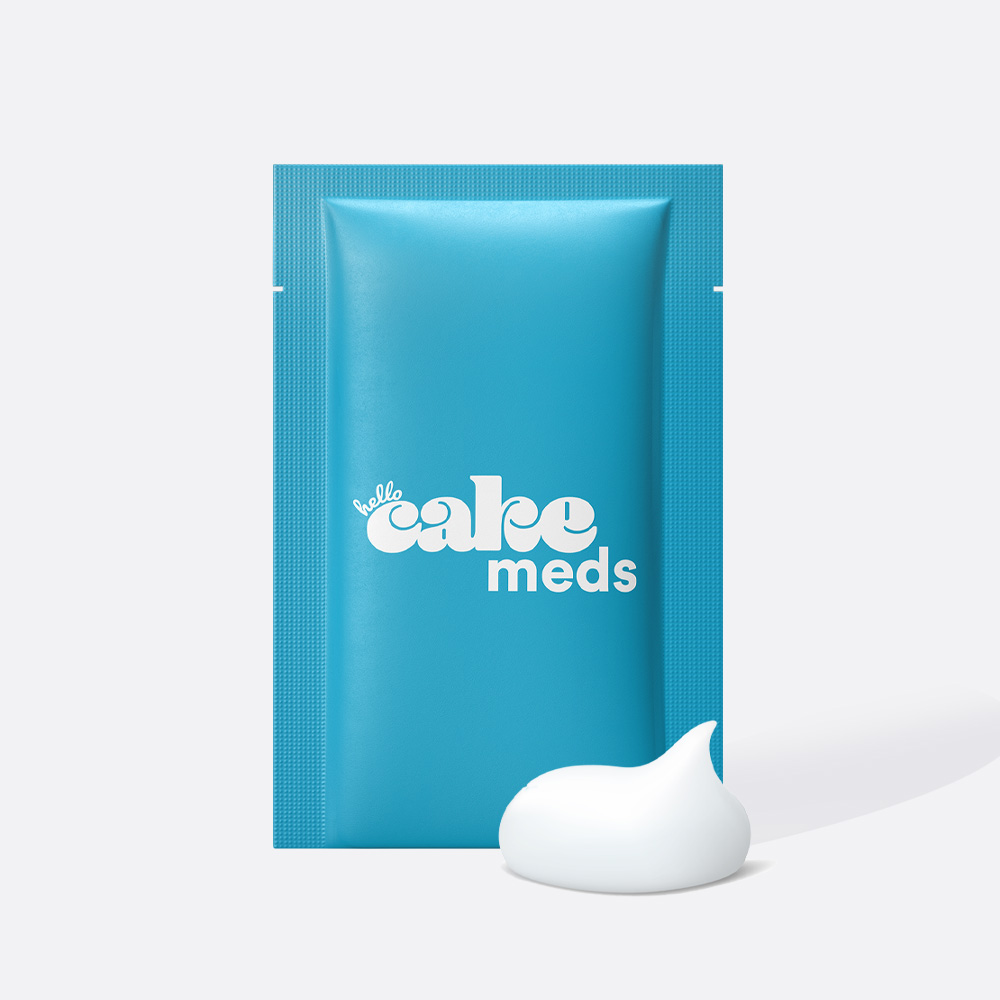
O-Cream
Fast acting prescription strength cream that increases blood flow and sensitivity to vaginal tissue.
Vaginal lubricants are applied before intercourse to reduce friction and irritation. They’re water-based or silicone-based for various needs. Choosing the right product can make a difference in comfort and effectiveness.
Lifestyle Changes and Atrophy Prevention
Making certain lifestyle adjustments can support vaginal health. Staying well-hydrated and avoiding irritating products like scented soaps can help. Wearing cotton underwear allows better airflow, which may reduce irritation.
Regular physical activity promotes healthy blood circulation, which benefits vaginal tissues. Pelvic floor exercises, like Kegels, strengthen pelvic muscles and may help prevent symptoms of atrophy.
Diet also plays a role. Eating foods rich in omega-3 fatty acids, such as fish and flaxseeds, can support overall vaginal health. It’s essential to manage stress, as it can impact hormonal balances and contribute to symptoms.
Common Menopausal Vaginal Issues
During menopause, declining estrogen levels can cause several changes in your vaginal health. Two common issues are itching, which may be accompanied by an unusual odor, and changes in discharge.
Dealing with Vaginal Itching and Odor
Vaginal itching during menopause can be frustrating. Estrogen loss causes thinning of the vaginal walls and less natural lubrication. This can lead to dryness and itching. To manage this, you might consider several approaches:
- Use gentle, fragrance-free soaps and detergents to avoid further irritation.
- Wear cotton underwear to allow your skin to breathe.
- Over-the-counter creams designed for this purpose can offer relief.
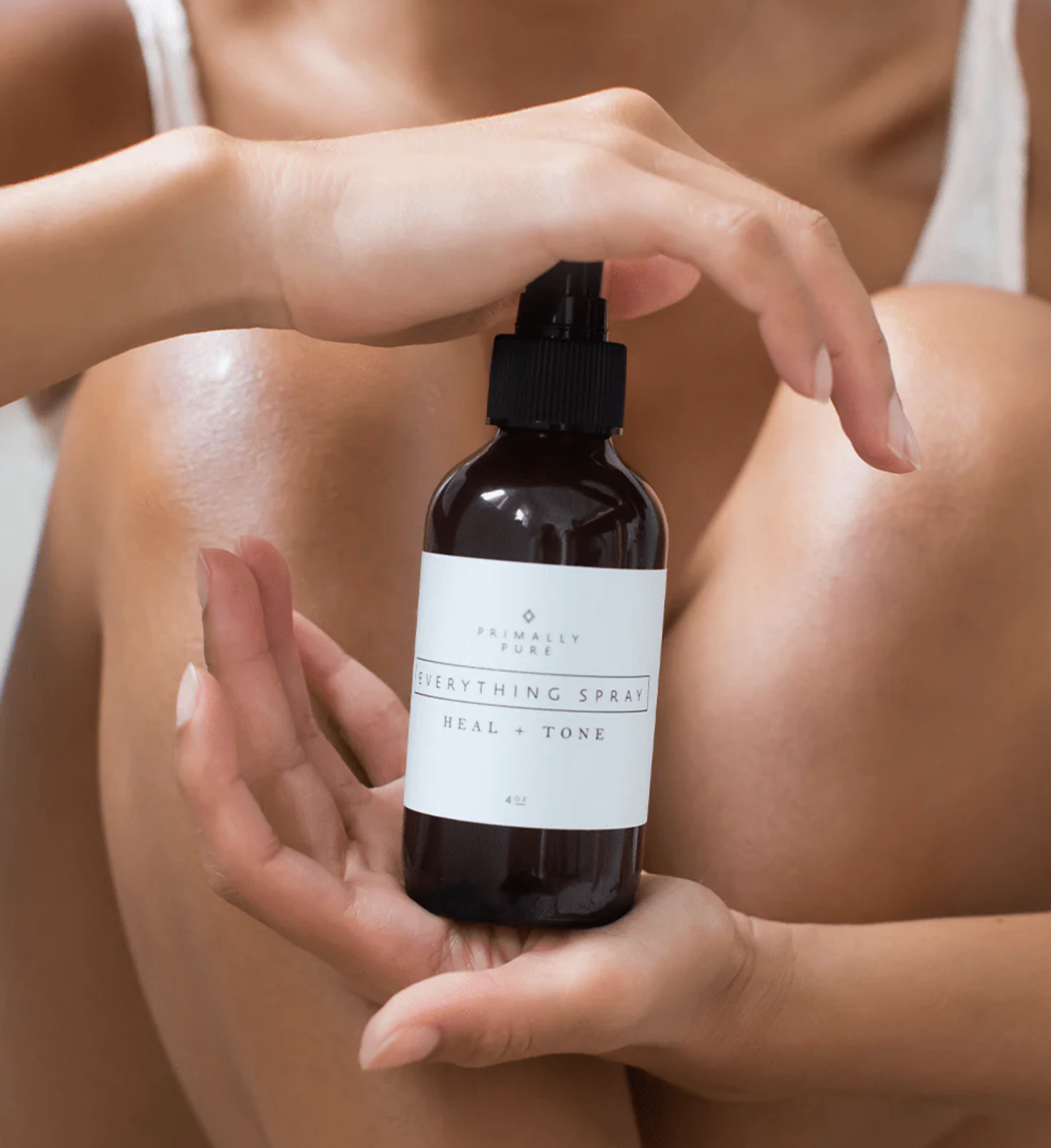
Everything Spray
A quick + easy underarm refresher, made with organic raw + unfiltered apple cider vinegar (antibacterial, antifungal, antiviral) balances pH levels.
Sometimes, itching may come with a noticeable odor. This could be a sign of infection or imbalance in vaginal bacteria. If the problem persists, it’s best to consult a healthcare provider for an accurate diagnosis and appropriate treatment.
Addressing Abnormal Vaginal Discharge
During menopause, changes in discharge can occur due to hormonal shifts. Discharge may become thinner or thicker, and its color might change. Pay attention to these changes:
- Clear or milky discharge is often normal.
- Yellow, green, or foul-smelling discharge could indicate an infection.
It’s important to track changes and seek medical advice if you notice anything unusual. Treatment might include antibiotics if an infection is present or hormone therapies to restore balance. Staying hydrated and maintaining a balanced diet can also support vaginal health during menopause.
Long-Term Health and Vaginal Atrophy
Vaginal atrophy, often occurring after menopause, is linked to several long-term health issues. It can increase the risk of urinary tract infections (UTIs) and correlate with other menopausal symptoms. Being aware of these issues is important for proactive health management.
Preventing Vaginal and Urinary Tract Infections
When estrogen levels drop, the vaginal lining thins and loses elasticity. This makes it easier for infections to take hold. The change in pH and moisture can create an environment where bacteria flourish, leading to more frequent UTIs.
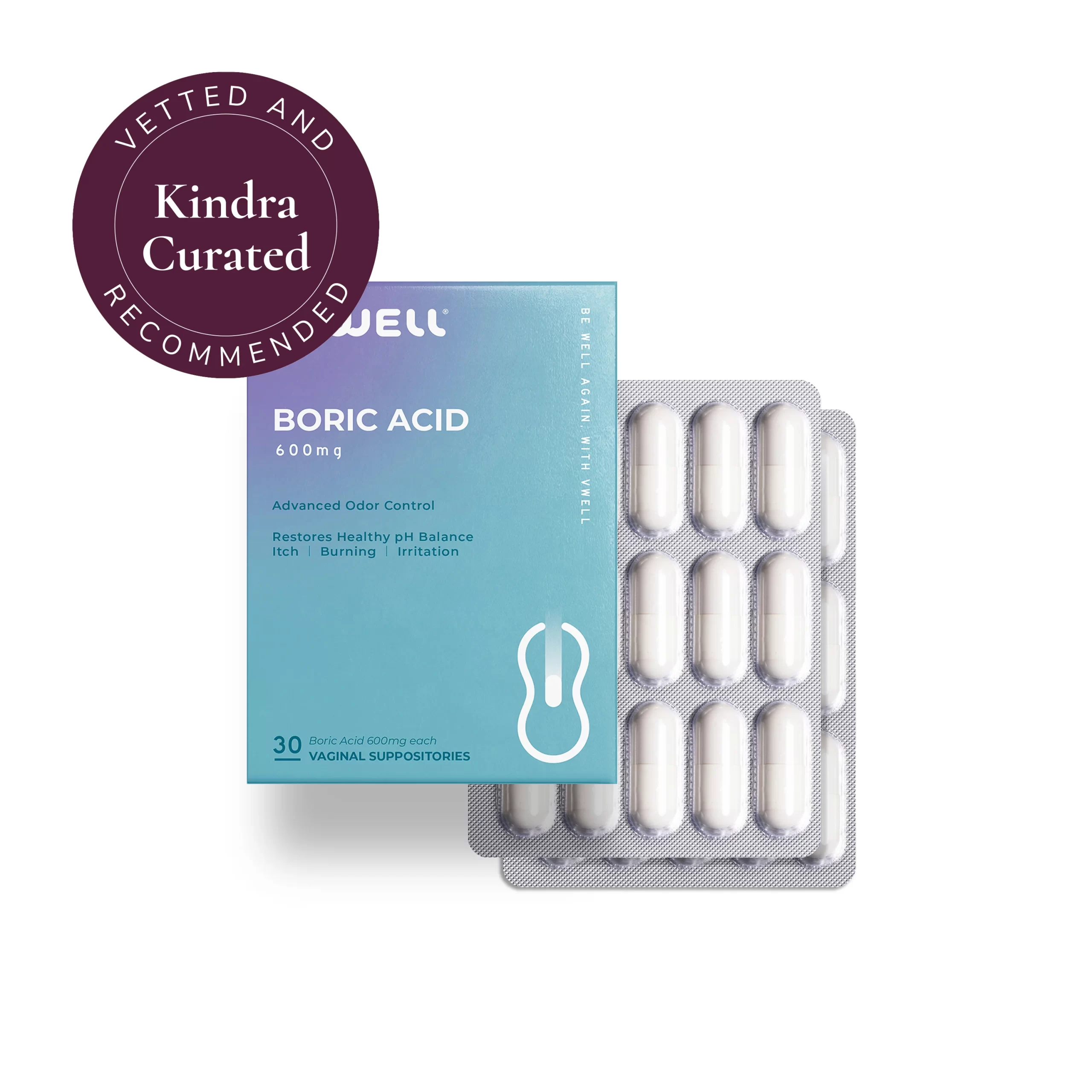
Restore Vaginal pH
Boric Acid Suppositories. Works to soothe discomfort and vulvovaginal itching
To lessen infection risks, use vaginal moisturizers and maintain good hygiene. Practices like drinking plenty of water and urinating after intercourse can help. Regular use of estrogen creams may also support skin health and reduce infection chances. If infections persist, consult a healthcare provider for further advice.
Correlation with Other Menopausal Symptoms
Vaginal atrophy often comes with other menopausal symptoms like hot flashes and mood swings. This correlation can amplify the discomfort during menopause. Dryness and irritation might also lead to painful intercourse, which can affect intimacy and quality of life.
Managing symptoms might involve hormone replacement therapy (HRT) to address several menopausal challenges simultaneously. Natural remedies like phytoestrogens in diet or lifestyle adjustments can also ease symptoms. It’s important to have a personalized approach since the experience varies from person to person based on health and hormonal changes.
Laser Therapies and Surgical Interventions
Laser treatments are becoming a popular option for addressing postmenopausal symptoms like vaginal atrophy and dryness. They offer a non-hormonal alternative for those seeking relief from discomfort.
Efficacy of Laser Treatments
Laser therapies, such as the MonaLisa Touch, are designed to improve vaginal health by stimulating collagen production. This helps restore vaginal tissue and alleviate symptoms like dryness and pain.
Patients often report satisfaction with these treatments, noting improvements in both comfort and quality of life. Laser devices are used in medical settings and require trained professionals for safe administration. While many find them effective, it’s important to consult your healthcare provider to discuss potential benefits and risks.
Support and Resources
When managing vaginal atrophy and related menopause symptoms, support is crucial. Emotional and physical changes can be challenging, and having the right resources can make a difference. Community and professional networks provide practical advice and empathy.
Navigating Emotional and Physical Changes
Menopause brings emotional and physical shifts that may impact your daily life. You may encounter mood swings, anxiety, or changes in body image, combining with vaginal dryness and discomfort.
To help, try maintaining a balanced lifestyle. Regular exercise and a healthy diet promote wellness. Mindfulness techniques like yoga or meditation can reduce stress. Keeping a journal or talking to friends also helps you process emotions.
It’s useful to educate yourself about what’s happening in your body. Understanding these changes helps you make informed decisions about treatments and lifestyle adjustments. Consult with healthcare professionals for personalized guidance based on your symptoms and health status.
Community and Professional Support
Building a support system is essential. Online forums and support groups connect you with others going through the same experiences. These communities offer advice and shared stories, reminding you that you’re not alone.
Additionally, professional support from doctors or therapists provides valuable guidance. Your healthcare provider can suggest treatments like hormonal or non-hormonal therapies tailored for your needs. Regular check-ups ensure your treatment plan continues to be effective.
You might explore counseling or therapy to address emotional challenges. A counselor can offer tools to manage stress and anxiety, supporting your overall well-being.
Engage with a mix of personal connections and professional guidance to navigate this time confidently.
Research and Emerging Treatments
Exploration in menopausal healthcare has introduced new methods and therapies to address symptoms like vaginal dryness. These advancements provide additional options, aiming to improve quality of life.
Advancements in Menopausal Healthcare
Recent studies have focused on vaginal moisturizers and creams that incorporate ingredients like hyaluronic acid. These are found to enhance hydration of vaginal tissues.

Vaginal Dryness Salve
All-natural salve is a soothing and cooling balm that melts into skin to instantly address vulvovaginal dryness, itching, and irritation.
Research also highlights the use of hormone replacement therapy (HRT), specifically low-dose topical estrogens, shown to be effective against dryness.
Further exploration includes non-hormonal treatments, such as certain lifestyle changes and dietary supplements like genistein, which may support vaginal health.
These therapies are designed to not only ease symptoms but also potentially restore the natural balance and comfort in your life.
Menopause can bring significant challenges, but understanding the causes and exploring effective treatments can make a world of difference. Vaginal atrophy and dryness, while uncomfortable, are manageable with the right approach. From medical treatments to natural remedies, there are solutions to suit every woman’s unique needs. Remember, you’re not alone in this journey. With the support of healthcare professionals, trusted resources, and a willingness to prioritize your well-being, you can navigate this phase with confidence and comfort. Take the first step toward reclaiming your health and embracing this new chapter with care and grace.






